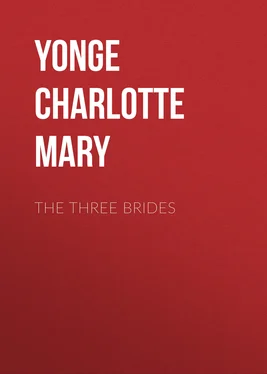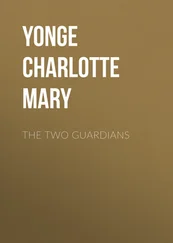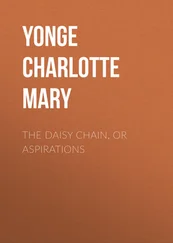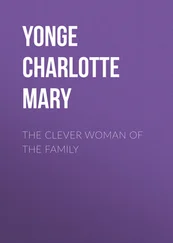Charlotte Yonge - The Three Brides
Здесь есть возможность читать онлайн «Charlotte Yonge - The Three Brides» — ознакомительный отрывок электронной книги совершенно бесплатно, а после прочтения отрывка купить полную версию. В некоторых случаях можно слушать аудио, скачать через торрент в формате fb2 и присутствует краткое содержание. Жанр: foreign_prose, literature_19, Европейская старинная литература, foreign_antique, на английском языке. Описание произведения, (предисловие) а так же отзывы посетителей доступны на портале библиотеки ЛибКат.
- Название:The Three Brides
- Автор:
- Жанр:
- Год:неизвестен
- ISBN:нет данных
- Рейтинг книги:4 / 5. Голосов: 1
-
Избранное:Добавить в избранное
- Отзывы:
-
Ваша оценка:
- 80
- 1
- 2
- 3
- 4
- 5
The Three Brides: краткое содержание, описание и аннотация
Предлагаем к чтению аннотацию, описание, краткое содержание или предисловие (зависит от того, что написал сам автор книги «The Three Brides»). Если вы не нашли необходимую информацию о книге — напишите в комментариях, мы постараемся отыскать её.
The Three Brides — читать онлайн ознакомительный отрывок
Ниже представлен текст книги, разбитый по страницам. Система сохранения места последней прочитанной страницы, позволяет с удобством читать онлайн бесплатно книгу «The Three Brides», без необходимости каждый раз заново искать на чём Вы остановились. Поставьте закладку, и сможете в любой момент перейти на страницу, на которой закончили чтение.
Интервал:
Закладка:
His tone of superior wisdom, meek and depressed as he always was, tried the Rector’s patience enough to make his forehead burn and bring out his white eyebrows in strong relief. “How about a blessing on the work?” he asked, suppressing so much that he hardly knew this was spoken aloud.
Again Mr. Fuller smiled. He had been a bit of a humorist when he was an Oxford don. “Speak of that to Briggs,” he said, “and he would answer, ‘Cash for me, and the blessing may take care of itself.’ As to the ladies—why, they deafen you about blessings on their humble efforts, and the widow’s mite.”
“Simply meaning that they want their amusement a little—”
“Buttered over,” said Mr. Fuller, supplying the word. “Though you are hard on them, Charnock—I don’t know about the fine ladies; but there are quiet folk who will work their fingers to the bone, and can do nothing else.”
“That’s true,” said Julius; “and one would gladly find a safe outlet for their diligence.”
“You do not trust to it for bringing the blessing,” said Mr. Fuller in a tone that Julius liked even less than the mere hopeless faint-heartedness, for in it there was sarcasm on faith in aught but £ s. d.
The two brothers held another discussion on this matter later that night, on the stairs, as they were on their way to their rooms.
“Won’t you come to this meeting to-morrow, Julius?” asked Raymond.
“I don’t see that I should be of any use, unless—”
“Unless what?”
“Unless you would make what seems to me the right proposal, and I could be any support in it.”
“What’s that?”
“To use the insurance to put up the mere shells and plain indispensable fittings of the church and town-hall, then make the drainage of Water Lane and Hall Street the first object for the rates, while the church is done by subscription and voluntary effort.”
“You put the drainage first—even before the church?” said Raymond, smiling, with an elder brother’s satisfaction in such an amount of common sense.
“Of course I do,” said Julius. “An altar and four walls and chairs are all that ought to be sought for. Little good can be done to people’s souls while their bodies are in the feverish discomfort of foul air and water. This is an opportunity not to be wasted, while all the houses are down, town-hall and all.”
“The very thing I told Briggs and the others this morning,” said Raymond; “but I could not get a hearing; they said there never had been any illness worth mentioning, and in fact scouted the whole matter, as people always do.”
“Yes, they take it as a personal insult when you mention the odorous—or odious, savours sweet,” said Julius. “I heard a good deal of that when we had the spell of cholera at St. Awdry’s.”
“I shall work on at it, and I trust to get it done in time,” said Raymond; “but it will not be at once. The subject is too new to them, and the irritation it produces must subside before they will hear reason. Besides, the first thing is to employ and feed these paper-makers.”
“Of course.”
“That will pretty well absorb this first meeting. The ladies will manage that, I think; and when this is provided for, I will try what I can do at the committee; but there is no good in bringing it forward at this great public affair, when every ass can put in his word. Everything depends on whom they choose for the new mayor. If Whitlock comes in, there is some chance of sense and reason being heard. Good night.”
As Raymond said, the more immediate object of the meeting fixed for the ensuing day, was to provide for the employment of the numerous women thrown out of employment by the destruction of the paper-mills. A subscription was in hand, but not adequate to the need; and moreover, it was far more expedient to let them maintain themselves.
How this was to be done was the question. Cecil told her husband that at Dunstone they made the women knit stockings; and he replied by recommending the suppression of Dunstone. How strange it was that what she had been used to consider as the source of honour should be here held in what seemed to her disesteem!
Lady Tyrrell’s ponies were tinkling up to the door of the hotel where the meeting was to be held, and her gracious smile recalled Cecil’s good-humour; Raymond saw them to their seats, and then had to go and take the chair himself on the platform—first, however, introducing his wife to such of the ladies present as he recollected.
She thought he wanted her to sit between melancholy white faced Mrs. Fuller and a bony spinster in a poke-bonnet whom he called Miss Slater; but Cecil, concluding that this last could have no vote, and that the Vicarage was secure, felt free to indulge herself by getting back to Lady Tyrrell, who had scarcely welcomed her before exclaiming, “Mrs. Duncombe, I did not know you were returned.”
“I came back on the first news of your flare-up,” said the newcomer. “I only came down this morning. I would not have missed this meeting for anything. It is a true woman’s question. A fair muster, I see,” looking round with her eye-glass, and bowing to several on the platform, especially to Raymond, who returned the bow rather stiffly.
“Ah! let me introduce you,” said Lady Tyrrell. “Mrs. Raymond Charnock Poynsett.”
“I am very glad to see you embarked in the cause,” said the lady, frankly holding out her hand. “May we often meet in the same manner, though I honestly tell you I’m not of your party; I should go dead against your husband if we only had a chance.”
“Come, you need not be so aggressive,” laughed Lady Tyrrell; “you haven’t a vote yet. You are frightening Mrs. Poynsett.” It was true. Even Cecil Charnock was born too late to be one of the young ladies who, in the first decades of the reformed Parliament, used to look on a Liberal as a lusus naturæ , whom they hardly believed to be a gentleman. But a lady who would openly accost the Member’s bride with a protest against his politics, was a being beyond her experience, and the contemplation fairly distracted her from her husband’s oratory.
She would have taken Miss Slater for the strong-minded female far rather than this small slim person, with the complexion going with the yellower species of red hair and chignon, not unlike a gold-pheasant’s, while the thin aquiline nose made Cecil think of Queen Elizabeth. The dress was a tight-fitting black silk, with a gorgeous many-coloured gold-embroidered oriental mantle thrown loosely over it, and a Tyrolean hat, about as large as the pheasant’s comb, tipped over her forehead, with cords and tassels of gold; and she made little restless movements and whispered remarks during the speeches.
There was to be a rate to renew the town-hall. The rebuilding of the paper-mills and dwelling-houses was fairly covered by the insurance; but the Vicar, in his diffident apologetic voice, stated that the church had been insufficiently insured, and moreover, that many more sittings were needed than the former building had contained. He then read the list of subscriptions already promised, expressed hopes of more coming in, invited ladies to take collecting cards, and added that he was happy to announce that the ladies of the congregation had come forward with all the beneficence of their sex, and raised a sum to supply a new set of robes.
Here the chairman glanced at his wife, but she was absorbed in watching Mrs. Duncombe’s restless hands; and the look was intercepted by Lady Tyrrell’s eyes, which flashed back sympathetic amusement, with just such a glance as used to pass between them in old times; but the effect was to make the Member’s face grave and impassive, and his eyes fix on the papers before him.
Читать дальшеИнтервал:
Закладка:
Похожие книги на «The Three Brides»
Представляем Вашему вниманию похожие книги на «The Three Brides» списком для выбора. Мы отобрали схожую по названию и смыслу литературу в надежде предоставить читателям больше вариантов отыскать новые, интересные, ещё непрочитанные произведения.
Обсуждение, отзывы о книге «The Three Brides» и просто собственные мнения читателей. Оставьте ваши комментарии, напишите, что Вы думаете о произведении, его смысле или главных героях. Укажите что конкретно понравилось, а что нет, и почему Вы так считаете.












